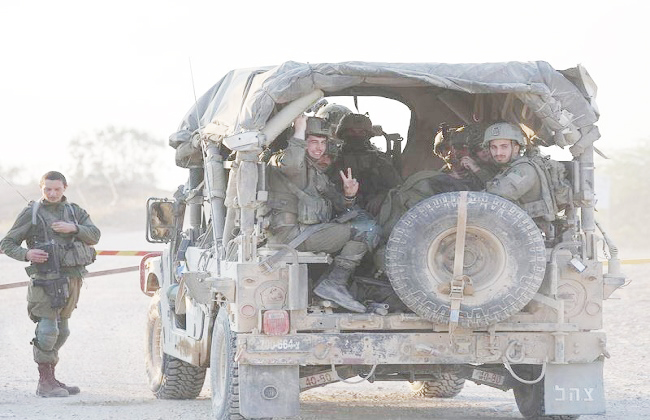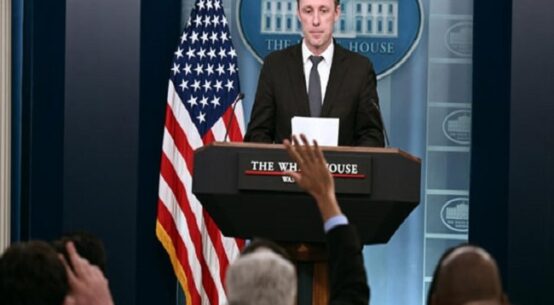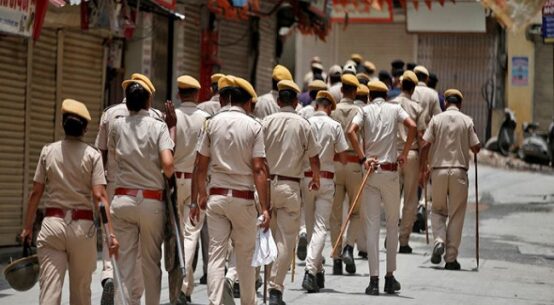
Israeli leaders were preparing Monday for military operations in Gaza’s southern city of Rafah, where most of the Palestinian territory’s population has fled after six months of fighting.
Talks in Cairo aimed at brokering a truce have made “significant progress”, with more negotiations expected in the coming days, Egyptian state-linked outlet Al-Qahera reported Monday.
International pressure has mounted on Israel to bring an end to the war, with its main ally the United States last week demanding a ceasefire and hostage release deal along with ramped-up aid deliveries.
Israel pulled its forces out of the southern Gaza Strip on Sunday.
But Israel’s Defence Minister Yoav Gallant said troops had left the city of Khan Yunis “to prepare for future missions, including… in Rafah”.
Prime Minister Benjamin Netanyahu said Israel was “one step away from victory”.
After troops left areas in and around the largely destroyed Khan Yunis, a stream of displaced Palestinians walked there, hoping to return to their homes from temporary shelters in Rafah, a little further south.
Muhammad Yunis, 51, a Palestinian in northern Gaza, saw nothing but loss.
“Isn’t the bombing, death and destruction enough?” he asked. “There are bodies still under the rubble. We can smell the stench.”
The war was sparked by the October 7 attack against Israel by Hamas militants that resulted in the deaths of 1,170 people, mostly civilians, Israeli figures show.
Hamas and Islamic Jihad militants also took more than 250 Israeli and foreign hostages, 129 of whom remain in Gaza, including 34 the army says are dead.
Israel’s retaliatory offensive has killed at least 33,175 people in Gaza, mostly women and children, according to the health ministry in the Hamas-run territory.
In Cairo, Al-Qahera reported “significant progress being mde on several contentious points of agreement”, citing a high-ranking Egyptian source.
The outlet said Qatari and Hamas delegations had left Cairo and were expected to return “within two days to finalise the terms of the agreement”.
US and Israeli delegations were due to leave the Egyptian capital “in the next few hours” and consultations were expected to continue over the next 48 hours, it added.
In a speech to mark six months since Hamas’s attack, Netanyahu told his cabinet that “Israel is ready for a deal”, adding that “there will be no ceasefire without the return of hostages”.
Netanyahu has come under heightened pressure from US President Joe Biden — whose administration is Israel’s top arms supplier and political backer — to end the war and improve the humanitarian situation.
An Israeli drone strike on April 1 killed seven aid workers for the US-based food charity World Central Kitchen, prompting Biden to hint at making US support for Israel conditional on boosting protections for civilians and improving humanitarian conditions.
Vast areas of Gaza have been turned into a rubble-strewn wasteland, with damage estimated at $18.5 billion to critical infrastructure, mostly housing, a World Bank report said.
Charities have accused Israel of blocking aid, but Israel has defended its efforts and blamed shortages on aid organisations’ inability to distribute assistance once it gets in.
“The denial of basic needs — food, fuel, sanitation, shelter, security and health care — is inhumane and intolerable,” World Health Organization chief Tedros Adhanom Ghebreyesus wrote on social media platform X.
Medical supplies were delivered for the first time through Israel’s Erez border point with northern Gaza, AFPTV footage showed.
Israel’s 98th commando division withdrew from Khan Yunis and left Gaza “in order to recuperate and prepare for future operations,” the army told AFP.
Maha Thaer, a mother of four returning to Khan Yunis, said she would move back into her badly damaged apartment, “even though it is not suitable for living, but it is better than tents”.
In Israel, people gathered Sunday at the site of the Nova desert music festival to pay tribute to the young revellers who died or were kidnapped there on October 7.
At the festival alone, 364 people were killed.
In Jerusalem, thousands gathered outside Israel’s parliament to demand the return of the hostages.
The war in Gaza has raised fears that conflict could engulf the wider region.
An adviser to Iran’s supreme leader warned Sunday that Israeli embassies were “no longer safe” after a strike in Syria that Tehran blamed on Israel killed seven Revolutionary Guards members.
Israeli defence chief Gallant said Sunday the army had “finished all its preparations to react to any scenario that could arise regarding Iran”.
The Israeli army said it had reached “another phase” of preparation for war on its northern border with Lebanon, where it has spent months exchanging fire with Iran-backed Hezbollah.
Israeli fighter jets struck a compound of Hezbollah’s elite Radwan Forces “in the area of Khiam”, near the Israeli-occupied Golan Heights, as well as a command centre near Toura, northeast of the coastal city of Tyre, the army said.
Yemen’s Huthi rebels, also backed by Iran, said they had targeted a British ship and two Israeli vessels, after a British maritime security firm reported three separate attacks off Yemen’s coast in less than 24 hours.
The rebels have launched dozens of missile and drone attacks on shipping in the Red Sea and the Gulf of Aden since November, leading to retaliatory strikes by the United States against Huthi targets in Yemen.
Iran’s top diplomat Hossein Amir-Abdollahian hailed “the brave support of the Yemeni nation for the oppressed Palestinian nation” as he started a regional tour in Oman on Sunday.


